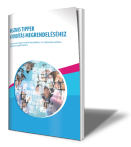
Professional Portuguese translation
300+ translators - affordable price - speed
Already over 120 million characters translated
Traducción de Portugal ● Need a specialised Portuguese translation?
Portuguese business translation
Our business and legal professionals have a high level of expertise and considerable translation experience, providing quality business Portuguese translations. We translate different but related business materials using the same terminology and consistent phrases, in most cases in the same form as the original, so that the Portuguese translation is always correct.
Portuguese legal translation
When translating a contract, a legal declaration, a power of attorney, a loan agreement or a lawsuit, and any other legal-related material, professionalism is crucial. With our legally qualified Portuguese translators, we can produce a signed and stamped translation, a so-called official translation, if required.
Portuguese medical translation
With many years of experience, we translate product brochures, case studies, medical and pharmaceutical literature for major pharmaceutical companies, pharmaceutical and non-pharmaceutical companies. With our specialist Portuguese translators, who are pharmacists and doctors, and have specialist knowledge of the words and expressions of the language, we provide our partners with high-quality specialist medical translations.
Portuguese marketing translation
The translation of Portuguese online marketing materials also needs to meet specific needs. When translating Adwords keyword lists, we look for linguistically catchy, short phrases, while when optimising websites, we pay attention to SEO aspects. In addition to this, we support the work of our specialist translators with the attention of our web development colleagues when translating website localisation, newsletter translation and frequently updated online content.
Portuguese financial translation
For balance sheets, annual reports and accounting documents, it is essential that a specialist Portuguese translator is involved. Our Portuguese language specialists for financial material always provide professional translations to ensure that the financial material is not only translated, but also correctly translated.
Portuguese technical translation
In the case of translations of instructions for use, operating instructions, machine manuals, technical approvals, production documents and specifications or any technological specifications, tender documents and product specifications, professional authenticity depends on the correct use of Portuguese. Our technical translators are specialists in several different technical fields, so you can trust their expertise.
Portuguese website translation
When translating websites, in most cases, not only the text content but also the text of illustrations, graphics and graphs must be properly rendered in each translated language, which is collectively known as localisation. We can help you to map your website and provide professional language localisation in Hungarian, Portuguese and all the neighbouring countries and other world languages.
Portuguese document translation
We can translate any official Portuguese document, certificate, document, certificate of employment or study, within a short time frame, providing a signed, stamped and certified translation if required. Ask for our certificate when ordering your Portuguese translation.
Why choose Lector?
Calculable
Correct price calculations and precise deadlines are the two most important aspects when compiling translations for our business partners. Our guarantee: translations are always prepared on time and at a fixed price.
300+ translators
Most of the more than 300 translating colleagues of our company have been real experts in specific languages and fields with more than a decade of experience. Many of them also translate into their mother tongue and do proofreading if necessary.
Secure
Securing your business material and data is our main priority. Documents can always be uploaded to and downloaded from the server of our agency via a secure channel. We treat content and personal information very discreetly.
Cost-efficient
Translation prices are always fair and correct! Our accurate quotations allow customers to calculate prices at any given time. We provide a discount price based on the document to be translated and the deadline, which always results in cost-effective translations.
Fast
Fast translations are essential to every business. We pay special attention to the specific requests of our customers. Short deadlines are sure to be met by our hardworking translators, even during weekends.
Business
Unique business expressions, dedicated translators, cost-centred invoices and corporate discounts help our partners to get their documents translated quickly and easily. Our long-term contracts grant extra discounts.
The translation agency of choice is Lector






They said about us
Did you know about the Portuguese language?
- More than 220 million people speak Portuguese as their mother tongue. Official language in Brazil (185 million), Portugal/Azores/Madeira Islands (11 million), Angola (60,000), Mozambique (30,000), Cape Verde (25,000), Timor-Leste, Equatorial Guinea, Guinea-Bissau, São Tomé and Príncipe, Macao, EU.
- It belongs to the Indo-European Romance language family. It has hundreds of dialects, of which Galician considers itself a separate language.
- Dialects. There are only two standard written versions used in education: European (Lusitanian) Portuguese and Brazilian Portuguese. The spelling and lexical differences between the two can be compared to the difference between British and American English, but there are also some grammatical differences between the two. There are also a number of surviving Portuguese Creole languages which are not dialects, but are separate languages that evolved from the Pijin languages that developed as a result of the Portuguese trade, such as Kabuverdiano (Cape Verde Islands), Forro (São Tomé and Príncipe) and Papiamento (Dutch Caribbean ABC Islands).
- Letters. The Portuguese language uses the Latin alphabet with the letter ç, and vowels can also have accents. These accents are not only simple stress markers, but also have a phonetic meaning.
- Portuguese is not a compound language, it only uses prefixes (e.g. hyper- "hyper-") and suffixes (e.g. -ização "-isation"). For this reason, the longest words in the language are scientific names of Greek and Latin origin (in the fields of chemistry, medicine or sociology). The longest word is tetraclorodibenzoparadioxina, or chemistry.
- The origin of words. In European Portuguese, there are many words with deep Arabic roots dating back more than 500 years of Islamic rule and reconquista. When they came into contact with Brazilian nature, they adopted tens of thousands of animal, plant and place names from indigenous languages, especially Tupí and its version regularised by the Jesuits, the Lingua Geral. This is the origin of place names ending in -açu ('big'), such as big waterfall and Iguaçu ('big water')
- To pronounce correctly, you need to know where the stress is. If it is not marked, you need to look at the end of the word. If the word has an a, e, o, s or m ending, the stress is on the penultimate syllable, in all other cases it is on the last. In cases other than these, as in Spanish, the stress is marked by an accent (sharp accent means open, hat means closed): José [zsuze], você 'you' [vuszé]. The Portuguese sound system, unlike Spanish, is rich in nasal vowels and double vowels (perhaps even surpassing French!), not to mention the fact that there can be huge differences in the pronunciation of such vowels between European and Brazilian languages.
- Language history. The closest ancestor of modern Portuguese is the so-called Galician-Portuguese, or Old Portuguese, which was spoken in the north-western part of the Pyrenees Peninsula, in what is now Galicia, Spain. Old Portuguese was a dialect of Latin spoken in Spain, like its Spanish ancestors, Old Castilian and Leonese or Aragonese. During the medieval conquests, the language area began to expand southwards, under various influences, and several dialects developed.
- Some say it is the most beautiful Slavic language. Because unaccented vowels are unstable and short, they are barely or not at all audible in rapid speech. Add to this the softenings and nasal sounds, and it is considered by many to be similar to Slavic.

Useful tips when ordering a translation
A truly professional business translation starts with the request for proposal! Read our collection of tips to help you order professional translations more easily and cost-effectively.



